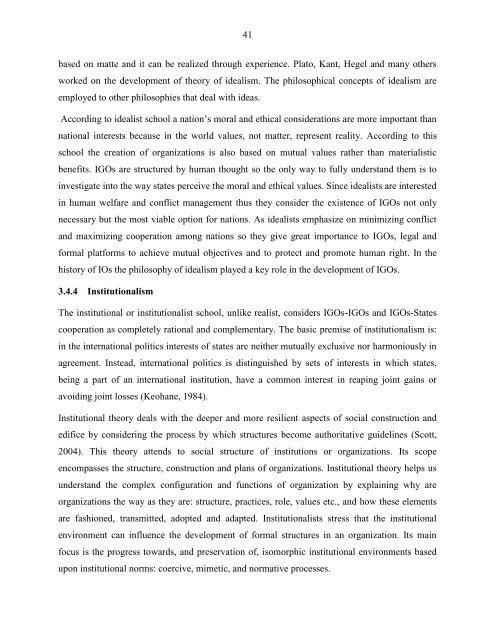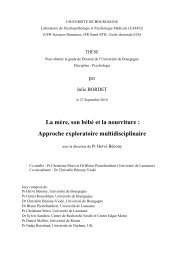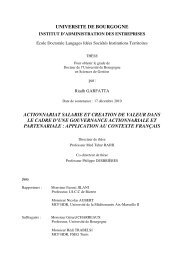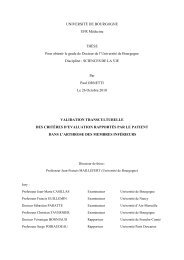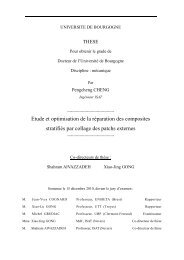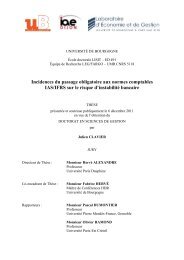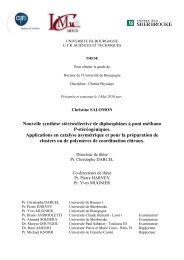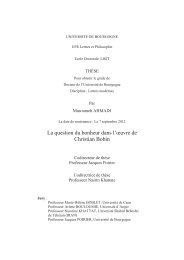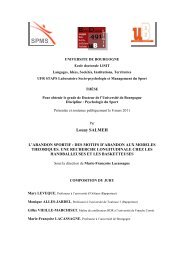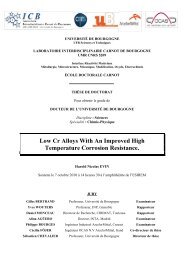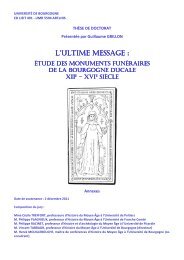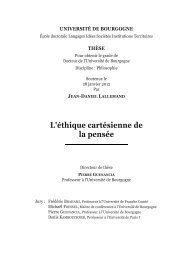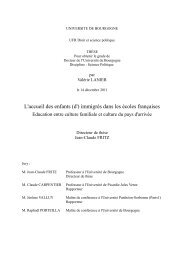Higher education in Asian countries and the role of international ...
Higher education in Asian countries and the role of international ...
Higher education in Asian countries and the role of international ...
Create successful ePaper yourself
Turn your PDF publications into a flip-book with our unique Google optimized e-Paper software.
41<br />
based on matte <strong>and</strong> it can be realized through experience. Plato, Kant, Hegel <strong>and</strong> many o<strong>the</strong>rs<br />
worked on <strong>the</strong> development <strong>of</strong> <strong>the</strong>ory <strong>of</strong> idealism. The philosophical concepts <strong>of</strong> idealism are<br />
employed to o<strong>the</strong>r philosophies that deal with ideas.<br />
Accord<strong>in</strong>g to idealist school a nation‟s moral <strong>and</strong> ethical considerations are more important than<br />
national <strong>in</strong>terests because <strong>in</strong> <strong>the</strong> world values, not matter, represent reality. Accord<strong>in</strong>g to this<br />
school <strong>the</strong> creation <strong>of</strong> organizations is also based on mutual values ra<strong>the</strong>r than materialistic<br />
benefits. IGOs are structured by human thought so <strong>the</strong> only way to fully underst<strong>and</strong> <strong>the</strong>m is to<br />
<strong>in</strong>vestigate <strong>in</strong>to <strong>the</strong> way states perceive <strong>the</strong> moral <strong>and</strong> ethical values. S<strong>in</strong>ce idealists are <strong>in</strong>terested<br />
<strong>in</strong> human welfare <strong>and</strong> conflict management thus <strong>the</strong>y consider <strong>the</strong> existence <strong>of</strong> IGOs not only<br />
necessary but <strong>the</strong> most viable option for nations. As idealists emphasize on m<strong>in</strong>imiz<strong>in</strong>g conflict<br />
<strong>and</strong> maximiz<strong>in</strong>g cooperation among nations so <strong>the</strong>y give great importance to IGOs, legal <strong>and</strong><br />
formal platforms to achieve mutual objectives <strong>and</strong> to protect <strong>and</strong> promote human right. In <strong>the</strong><br />
history <strong>of</strong> IOs <strong>the</strong> philosophy <strong>of</strong> idealism played a key <strong>role</strong> <strong>in</strong> <strong>the</strong> development <strong>of</strong> IGOs.<br />
3.4.4 Institutionalism<br />
The <strong>in</strong>stitutional or <strong>in</strong>stitutionalist school, unlike realist, considers IGOs-IGOs <strong>and</strong> IGOs-States<br />
cooperation as completely rational <strong>and</strong> complementary. The basic premise <strong>of</strong> <strong>in</strong>stitutionalism is:<br />
<strong>in</strong> <strong>the</strong> <strong>in</strong>ternational politics <strong>in</strong>terests <strong>of</strong> states are nei<strong>the</strong>r mutually exclusive nor harmoniously <strong>in</strong><br />
agreement. Instead, <strong>in</strong>ternational politics is dist<strong>in</strong>guished by sets <strong>of</strong> <strong>in</strong>terests <strong>in</strong> which states,<br />
be<strong>in</strong>g a part <strong>of</strong> an <strong>in</strong>ternational <strong>in</strong>stitution, have a common <strong>in</strong>terest <strong>in</strong> reap<strong>in</strong>g jo<strong>in</strong>t ga<strong>in</strong>s or<br />
avoid<strong>in</strong>g jo<strong>in</strong>t losses (Keohane, 1984).<br />
Institutional <strong>the</strong>ory deals with <strong>the</strong> deeper <strong>and</strong> more resilient aspects <strong>of</strong> social construction <strong>and</strong><br />
edifice by consider<strong>in</strong>g <strong>the</strong> process by which structures become authoritative guidel<strong>in</strong>es (Scott,<br />
2004). This <strong>the</strong>ory attends to social structure <strong>of</strong> <strong>in</strong>stitutions or organizations. Its scope<br />
encompasses <strong>the</strong> structure, construction <strong>and</strong> plans <strong>of</strong> organizations. Institutional <strong>the</strong>ory helps us<br />
underst<strong>and</strong> <strong>the</strong> complex configuration <strong>and</strong> functions <strong>of</strong> organization by expla<strong>in</strong><strong>in</strong>g why are<br />
organizations <strong>the</strong> way as <strong>the</strong>y are: structure, practices, <strong>role</strong>, values etc., <strong>and</strong> how <strong>the</strong>se elements<br />
are fashioned, transmitted, adopted <strong>and</strong> adapted. Institutionalists stress that <strong>the</strong> <strong>in</strong>stitutional<br />
environment can <strong>in</strong>fluence <strong>the</strong> development <strong>of</strong> formal structures <strong>in</strong> an organization. Its ma<strong>in</strong><br />
focus is <strong>the</strong> progress towards, <strong>and</strong> preservation <strong>of</strong>, isomorphic <strong>in</strong>stitutional environments based<br />
upon <strong>in</strong>stitutional norms: coercive, mimetic, <strong>and</strong> normative processes.


